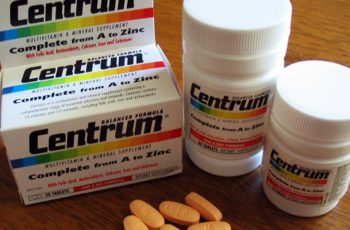Cayenne peppers belong to the nightshade family of flowering plants and are closely related to jalapeños, paprika, and bell peppers.
Cayenne peppers are a popular spice used in many different regional styles of cooking, and they have been used medicinally for thousands of years.
Native to Central and South America, they were brought to Europe in the 15th century by Christopher Columbus.
Cayenne peppers boast an impressive nutrition profile and are loaded with antioxidants that benefit your health.
Capsaicin, the active ingredient in cayenne peppers, gives them both their hot taste and medicinal properties. The capsaicin content in a pepper single-handedly determines how hot it is. The more capsaicin it contains, the hotter it is.
One tablespoon (5 grams) of cayenne pepper contains the following:
- Calories: 17
- Fat: 1 gram
- Carbs: 3 grams
- Fiber: 1.4 grams
- Protein: 0.6 grams
- Vitamin A: 44% of the RDI
- Vitamin E: 8% of the RDI
- Vitamin C: 7% of the RDI
- Vitamin B6: 6% of the RDI
- Vitamin K: 5% of the RDI
- Manganese: 5% of the RDI
- Potassium: 3% of the RDI
- Riboflavin: 3% of the RDI
Here are seven science-backed benefits of cayenne pepper.
1. Metabolism Booster
The capsaicin in cayenne peppers has metabolism-boosting properties. It helps increase the heat your body produces, making you burn more calories daily. It does this through a process called diet-induced thermogenesis, which causes an increase in your metabolism.
In one study, people who ate a breakfast containing capsaicin and medium-chain triglyceride oil burned 51% more calories during that meal compared to people who had neither for breakfast. But while capsaicin helps boost metabolism, the overall effect is negligible.
In another study, people who ate 1 gram of red cayenne pepper only burned ten more calories over four and a half hours compared to those who didn’t eat any cayenne pepper. It’s also important to know that people who regularly consume dietary spices like cayenne pepper don’t continue to reap the same benefits from them over time as their bodies adapt to the effects.
Summary: The capsaicin in cayenne peppers may help boost your metabolism. However, its effect is small, and you may build up a tolerance.
2. Helps Curb Hunger Cravings
Interestingly, cayenne peppers may reduce hunger, helping you eat less and feel fuller for longer.
Many studies show the capsaicin in cayenne peppers helps reduce hunger. How it does this is not entirely understood, but one study showed that it reduces the production of the hunger hormone ghrelin.
One study showed that people taking capsaicin ate less food throughout the day than those who didn’t take any. Specifically, those taking capsaicin supplements ate 10% less, while those who drank a capsaicin-containing beverage ate 16% less. People in the same study also reported feeling fuller while eating fewer calories.
Summary: The capsaicin in cayenne peppers may help reduce your hunger, helping you eat less throughout the day.
3. Combats High Blood Pressure
High blood pressure is a considerable health risk worldwide. Over 40% of adults over 25 have high blood pressure. Interestingly, animal studies have shown that the capsaicin in cayenne peppers may reduce high blood pressure.
One study in mice with high blood pressure showed that the long-term consumption of dietary spices containing capsaicin helped reduce blood pressure.
Another study showed that capsaicin helped relax blood vessels in pigs, leading to lower blood pressure. It’s important to note that the findings above are based on animals, and capsaicin’s effects may differ in humans. It is best to take these findings with a grain of salt.
Summary: Capsaicin has appeared to reduce blood pressure in animal studies. Human studies are needed before making a recommendation.
4. Aids In Digestive Health
Dietary spices and their active components may provide many benefits for your stomach.
For example, cayenne pepper may help boost the stomach’s defense against infections, increase digestive fluid production and help deliver enzymes to the stomach, aiding digestion. It does this by stimulating nerves in the gut that signal for protection against injury.
While some believe that spicy food may cause stomach ulcers, a review paper has shown that the capsaicin in cayenne peppers may actually help reduce the risk of stomach ulcers.
Summary: Cayenne peppers may help improve your digestive health and reduce your risk of stomach ulcers.
Capsaicin has potent pain-relieving properties when applied to the skin in a cream. This is because capsaicin helps reduce the amount of substance P, a hormone produced by the body that travels to the brain to signal pain.
When less substance P is produced, pain signals can no longer reach the brain, and feelings of pain decrease.
Capsaicin is available as a skin cream and is often recommended for the following conditions:
- Joint and muscle pain
- Lower back pain
- Pain after surgery
- Pain from nerve conditions like shingles
Additionally, it’s important to note that capsaicin cream should not be applied to an open wound or broken skin.
Summary: Capsaicin has powerful pain relief properties. It relieves pain by reducing the amount of substance P that your body produces.
6. May Improve Psoriasis
Autoimmune diseases are conditions in which your body attacks itself.
Psoriasis is an example of an autoimmune disease that appears as patches of red, itchy, and scaly skin. Currently, there is no cure for psoriasis. However, capsaicin creams can help relieve itching and improve the appearance of psoriasis-affected areas.
One study showed that psoriasis patients treated with capsaicin cream had significantly reduced scaling, redness, and patchiness than patients who received a placebo cream. It’s believed that substance P plays a role in psoriasis. As mentioned previously, capsaicin helps reduce the amount of substance P produced by your body.
Summary: Capsaicin creams may help improve symptoms of psoriasis by helping reduce the amount of substance P produced by your body.
7. May Help Reduce Cancer Risk
Cancer is a disease characterized by uncontrollable cell growth.
The capsaicin in cayenne peppers shows promise in reducing the risk of cancer. It may do this by attacking many pathways in cancer cell growth. Studies have shown that capsaicin can slow the growth of cancer cells and even cause cell death for many different types of cancer, including prostate, pancreatic, and skin cancer.
While capsaicin’s effects on cancer cells seem promising, it’s important to note that the current findings are based on laboratory and animal studies.
Capsaicin’s effects on cancer in humans have not yet been studied, so it’s wise to take this information with a grain of salt.
Summary: Capsaicin has shown promise in cancer research, although human studies are needed before any conclusions can be made.
The Bottom Line
Cayenne peppers may have many health benefits resulting from their active component, capsaicin. They may reduce your appetite and help lower blood pressure, among many other benefits. If you’re worried that cayenne peppers may interact with your current medication, it’s best to check with your doctor.
For most people, cayenne peppers are a great way to add a kick to your diet!
If you found this article helpful, please share it with your friends and family by clicking the button below!




